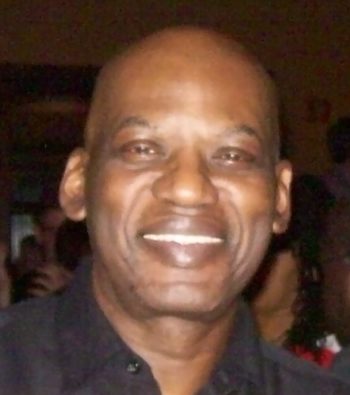
by Dave Tulloch

The Umoja Black Community Engagement Program was recently initiated at Carleton University in June 2022 by three Carleton students; Sarah George a Ph.D. student in the department of sociology, Jennice Hinds, a Ph.D. student in the department of linguistics, and Emily Barker a third-year criminology student and supported in its first year by undergraduate coordinators Yohance Huggins-Charles and Kristian McKesey.
Umoja is a Swahili word that means unity. It was chosen as the program name to represent a dedication to Pan-Africanism (“the principle or advocacy of the political union of all the indigenous inhabitants of Africa”). This Carleton University-based Pan-Africanist organization is dedicated to addressing anti-Black racism in education through pro-Blackness and the unity of all people of African descent. The Umoja logo is a combination of Marcus Garvey’s Pan-African flag and the adinkra symbol for unity, Nkonsonkonson, to represent our Pan-Africanist principles as well as the everlasting connection between Africa and the diaspora.
Umoja was developed to provide culturally relevant programming and opportunities for connection for students who are racialized as Black. As African, Caribbean, and Black (ACB) students, it was important to establish a program that is dedicated to academia and the community, supported by the university, and will outlast the current ACB student population after they have graduated.
The program is dedicated to the academic, professional, and personal empowerment of the Ottawa region’s African, Caribbean, and Black (ACB) communities. Umoja hosts public education programs and events that both seek to dismantle anti-Black racism in society and celebrate the lives and accomplishments of the ACB community. The organization partners with local ACB groups and individuals to develop programming and events that strive to address the impact of anti-Black racism on educational and career outcomes for ACB students, youth, and community members. It helps ACB students and youth manage academic transitions, develop career-ready skills, and build personal connections.
Carleton University has a significant population of African, Caribbean, and Black (ACB) students and has committed to addressing anti-Black racism through participation in The Scarborough Charter, which is specifically dedicated to addressing anti-Black racism on Canadian campuses. ACB students expressed a need for continued support to help them develop practical skills to navigate post-secondary institutions, build connections, and confront anti-Black racism in their spaces. Umoja is working to fill this gap and to establish networks with ACB high school, university, and community members to ensure a larger outreach and holistic impact. The Umoja’s High School Coordinator has created two flagship programs: The University Survival Guide and Scoring in the Post. These online events have been very successful in supporting ACB high school students with the transition from high school to post-secondary to make the campus accessible to Black youth, parents, and caregivers. They have created spaces for Black students to have open, honest dialogues about their experiences on campus. And because they are hosted in collaboration with other clubs and groups in the Carleton University community, they have also served as a vehicle to foster unity among Black student leaders. In addition, these events provide a valuable networking environment that fulfills the desire amongst students to connect with other leaders, organizations, and influencers. High School students can use this forum to get answers to their questions relating to their future direction from those who have traveled those pathways before them.
The Umoja team will be hosting four community events for Black History Month. A lead-up hybrid event on January 21, Antitode to AntiRacism, will detail the ACB community in Ottawa’s historical and future resistance to anti-Black racism through two panels and audience Q and A. This event is in partnership with the Ottawa Black Mental Health Coalition, Somerset West Community Health Centre, and the Canadian Women of Color Leadership Network. During February, Umoja will host a two-part community healing series titled “Hair Mind Body and Soul” on February 4 and 11 at Sandy Hill Community Centre (250 Somerset Street East) in partnership with the AIDs committee of Ottawa, BLKGURl, Somerset West Community Health Centre. To close the month, Umoja will host a Poetry and Open Mic night in partnership with Carleton’s Institute of African Studies and featuring guest speaker Senator Wanda Thomas Bernard as well as feature poets Professor Nduka Otiono, Sandra Bittar, Asli Mahdi, and Dominique Gene.
The promotion of this initiative to Ottawa’s ACB community outside of the Carleton University environment has been one of Umoja’s major challenges. In this regard, the organization has expressed its gratitude to the blackottawascene.com online publication for highlighting its initiative. They have also noted that although Umoja is still in its infancy, its early successes bode well for this initiative and promise a much more progressive future for Ottawa’s ACB community and beyond. This writer wishes to thank Patsy Orkar, Carleton’s University Equity, Diversity, and Community Programs Coordinator (Student Experience Office) for significantly contributing to the content of this profile on Umoja.

Dave Tulloch was born in Jamaica. He immigrated to Canada in 1970 to pursue post-secondary education. He earned a diploma in electronics engineering technology from Algonquin College, a Bachelor of Admin and Bachelor of Commerce (Hon) from the University of Ottawa, and a Master of Business Administration from Concordia University. He has an extensive career in information technology and in IT consulting with Systemhouse, KPMG, and Oracle Corporation where he retired as a director. Dave taught IT and business courses at CEGEP (Hull) and tutored at the Wake Tech College in North Carolina. He wrote articles for the Ottawa Spectrum publication that focused on Ottawa’s Visible Minorities community and has written a book documenting the life stories of early Caribbean Immigrants to Ottawa, scheduled for publication later this year. He can be contacted via email: [email protected]

